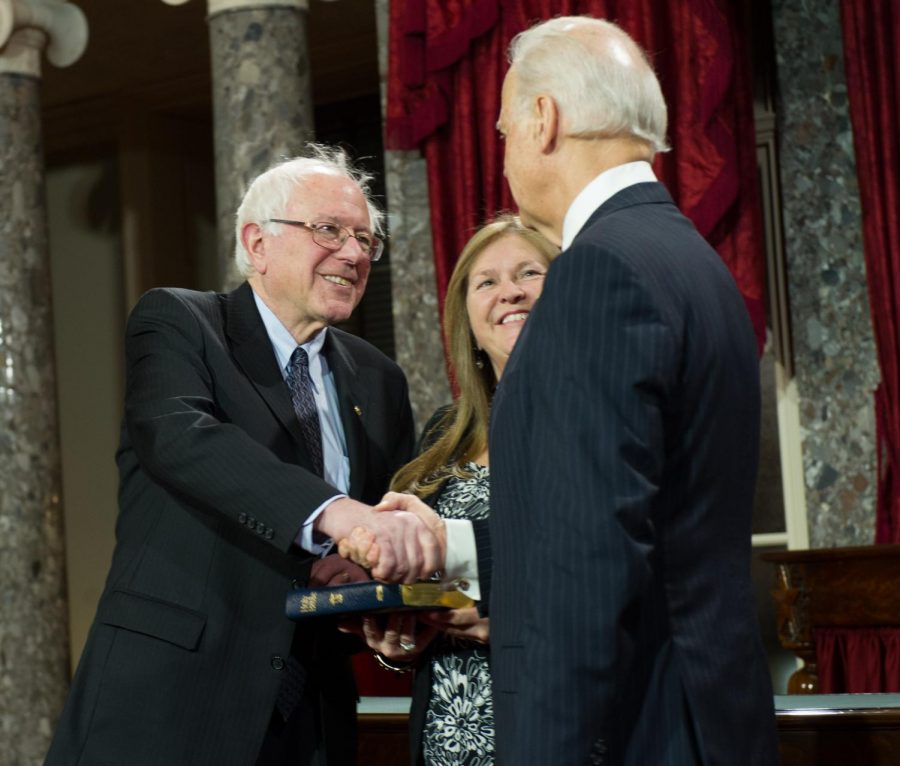Catching up on the 2020 Democratic Primary
Then Vice President Biden meeting Senator Sanders in 2013 on the Senate floor
March 27, 2020
The primaries for the 2020 presidential election are well underway. The Republican primaries have already been handily decided, with incumbent President Trump getting 1,339 delegates, exceeding the 1,276 needed to win with one delegate going to former Massachusetts governor Bill Weld.
More contested are the Democratic primaries with 7 candidates receiving support from delegates and no one candidate yet getting the 1,991 delegates required to win. The two front runners are long time Senator Bernie Sanders and former Vice President Joe Biden.
Biden is in the lead so far with 1,215 delegates, Sanders trails him with 909 delegates and the next closest candidate is Senator Elizabeth Warren, who dropped out of the race with 83 delegates voting for her.
The procedure for delegates who vote for a candidate that drops out is that (at the district level) they are free to vote for whichever candidate they want at the Democratic National Convention (DNC) where the nominee will be chosen. This is where now dropped out candidates come into play, while delegates are free to cast their vote for either eligible candidate, who the delegate’s initial candidate endorses can often impact where their vote goes in the second round.
The process for state delegates is if a candidate still running has at least 15 percent of the popular vote in a state, they get a portion of that state’s delegates. This proportion is determined by whether Biden or Sanders won more of the popular vote of the state. For example, if a state had 20 delegates who voted for now dropped out candidates and both Biden and Sanders won 20 percent of the popular vote, each would receive 10 delegates.
The future of the Democratic primaries is in flux with the ongoing COVID-19 (coronavirus) pandemic. Nine primaries originally scheduled to occur in the coming months were pushed back to June in hopes of avoiding the worst of the pandemic and preserving the health of voters and staff. The DNC is scheduled for mid-July in Milwaukee. This results in a possibly complicated situation because, as of Tuesday, Wisconsin will have a stay-at-home order designed to combat the spread of COVID-19. If delayed primaries and the DNC go ahead on their scheduled dates, the best-case scenario for the Democratic Party, then that should realistically result in the General Election running as planned.


